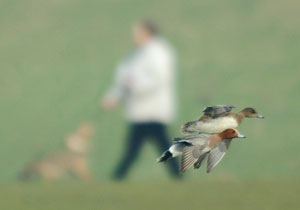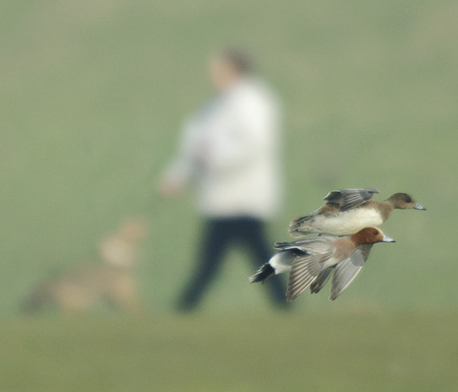 Interim results from a study at Bournemouth University show that walkers disturb waterfowl more regularly than wildfowling.
Interim results from a study at Bournemouth University show that walkers disturb waterfowl more regularly than wildfowling.
The ongoing study, commissioned by BASC, is measuring the relative potential impacts of a variety of activities, including dog walking and wildfowling in Poole Harbour. Research into the disturbance of wild birds is important because estuaries, such as the one at Poole Harbour, provide essential habitat for many species of waterbirds, such as godwits, wigeon, teal and avocets.
Previous studies, such as those by Footprint Ecology, have found that walkers and dog-walkers account for around two thirds of all recreational activity on estuaries. The importance of this research lies in informing conservation managers and statutory agencies of the relative impact of particular activities, so that informed and proportionate decisions can be made when regulating individual sites.
Final results from the study are expected around the end of 2015.
Alan Jarrett, Chairman of BASC said; “I am pleased that BASC is at the cutting edge of research in this field. No one else is doing this work at this level.”
Mark Greenhough, BASC Wildfowling Officer said; “This is ground breaking research that could revolutionise the way in which key wildfowling and waterbird sites are regulated.”
Catherine Collop, the researcher conducting the study, said; “Disturbance is the hot topic in conservation. I hope that my work can allow managers to make evidence based decisions.”
